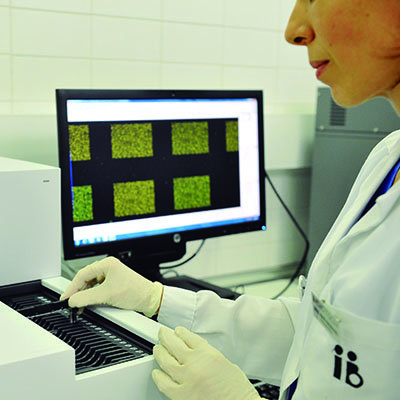
Should embryos with chromosomal mosaicism be rejected?
When good quality embryos do not implant correctly or lead to pregnancy loss, in vitro fertilisation (IVF) does not provide us with the results we had hoped for. This is often because the embryo is a carrier of abnormal chromosomes. Fortunately, in our clinic, we have access to the very latest in embryo chromosome diagnosis techniques such as array CGH and next generation sequencing (NGS). We can use this technology to detect abnormalities in the embryo that will cause pregnancy loss or that will lead to the birth of a child with chromosomal abnormalities such as Down’s Syndrome, also known as trisomy 21. As such, we can use these techniques to select and transfer the embryos with the greatest chance of leading to the birth of healthy child.
The sensitivity of these techniques means that, not only can they detect embryos with chromosomal abnormalities but also embryos that are carriers of chromosomal mosaicism. Chromosomal mosaicism is a mixture of normal and abnormal cells and classifying mosaic embryos as abnormal is controversial because:
- On the one hand, mosaicism may be located exclusively in the section of the embryo that is analysed (the trophectoderm or the future placenta) and may not affect the future baby.
- Additionally, according to the latest research, it would appear that the embryo is capable of eliminating abnormal cells and replacing them with normal ones.
Furthermore, recent publications on the issue have shown that embryos of this kind lead to the birth of healthy children although their chances of generating a pregnancy are smaller. Even so, the decision to transfer them or not depends on a number of factors:
- An ABSENCE of normal embryos without mosaicism available for transfer
- The type of mosaicism in the embryo
- The couple’s medical background
Should a mosaic embryo be detected during Comprehensive Chromosome Screening (PGS/PGT-A/CCS), the couple or patient should always be given genetic guidance. At our clinic, we have an interdisciplinary team in charge of assessing each case individually and providing patients with appropriate advice.
Dr Ruth Morales, molecular biologist at Instituto Bernabeu.
